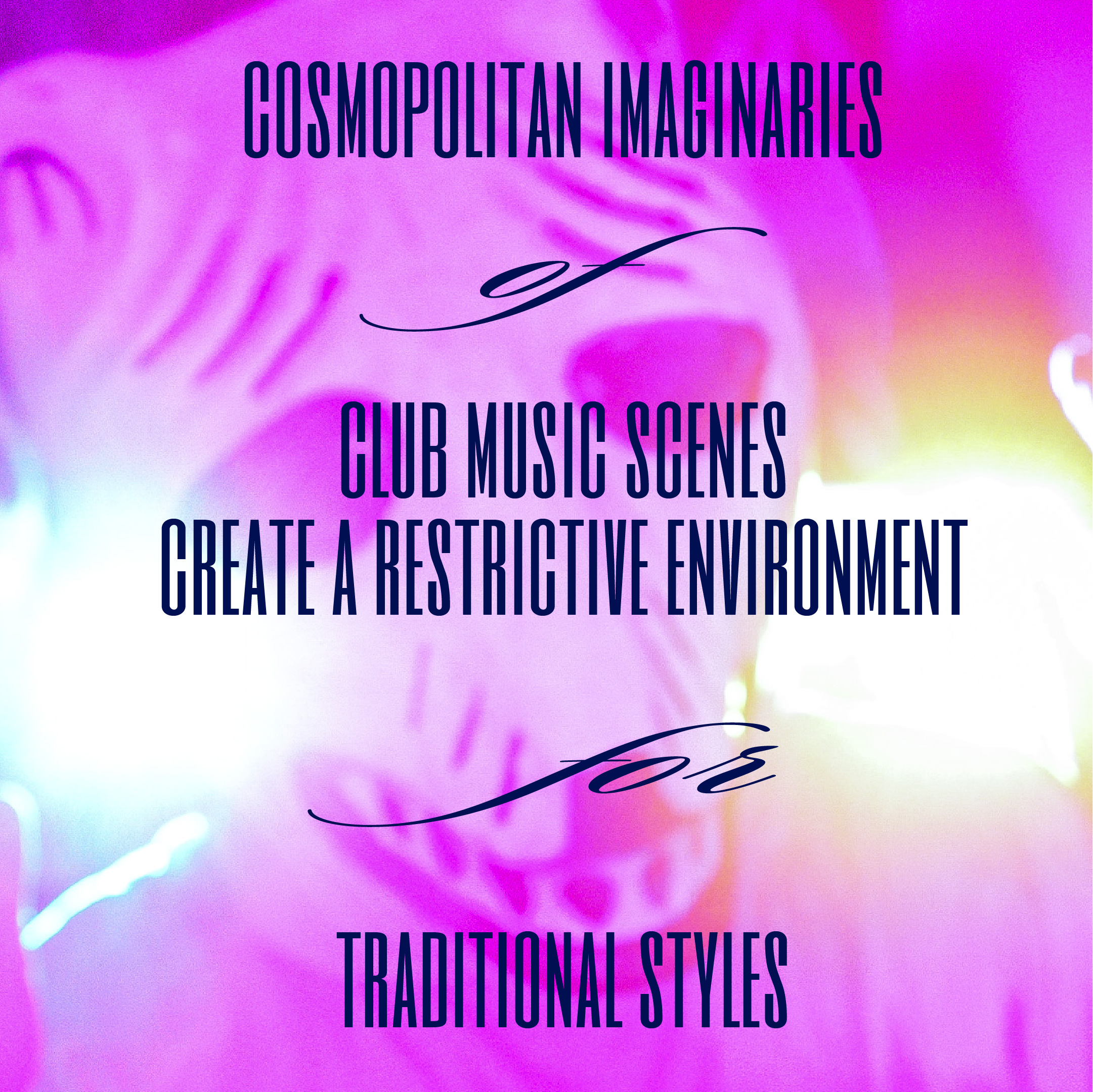
The «Problem» and Potential of Tradition
In the music world, the term tradition has often reinforced an essentialist notion of an artist’s relationship to their origins. In an essay inspired by the OneBeat residency program in New York, the musicologist Rim Jasmin Irscheid is struck by a young generation of musicians cultivating musical heritage as a new form of empowerment.
As someone researching experimental music in the MENA region, the phrase «traditional music» can seem outdated, even backward. It is reminiscent of an older, neo-orientalist generation of world music which incorporated modernity-tradition binaries into its aesthetic precepts and representations of Arab musicians. OneBeat’s workshop title «Everything Old is New Again: Uplifting Traditional Music Through Modern Sounds» reminded me of that generation. I expected the programme to encourage a similar celebration of traditional music from around the world based on essentialist understandings of cultural identities. Instead, OneBeat provoked me to rethink the «problem» of tradition, particularly in (post)world music curatorship.
Growing Movement of Musicians
Aims to reverse the power dynamics of previous world music productions gave birth to a new generation of artists and curators loosely tied together by their postcolonial criticisms of world music. This often translates into a feeling of discomfort when I hear formerly PR-effective labels such as «non-Western», «oriental» or «exotic», with their colonial-linguistic overtones, being used to describe regional musical styles. These sentiments led me to unconsciously make assumptions about the lack of agency of musicians engaged with traditional music, by virtue of their being caught in postcolonial dependencies. Intent on reversing the inequalities that the world music industry has created through its staging of stereotypical national sounds, the negative connotations of tradition were at the centre of my concerns. Only later did I learn that I had failed to notice a growing movement in diasporic music scenes that engages with musical heritage as a form of empowerment.
During the workshop, I was struck by the curiosity that musicians showed for different regional styles that were not part of their own cultural upbringing. I was excited to hear musicians sharing their stories about the affective residue of folkloric songs and their capacities to contribute to imaginations of a shared humanity. I learned that workshop participants’ engagement with regional vocal styles and drum patterns had less to do with sensationalizing their heritage than with the rising interest of post migrant citizens in the cultural heritage espoused by their parents, and their desire to proudly express belonging to more than one societal group. This shift has been intensified by recent socio-political developments: rising Islamophobia across Europe, and cultural solidarity with minority communities following discussions around structural racism and anti-immigrant sentiments on social media.
The «Right Amount» of Orientalism
The engagement in postcolonial criticisms alone does not bring agency back to the forefront. While perhaps well-intended, avoiding the narratives and language of the world music industry does not automatically resolve its unequal power dynamics and orientalizing demands. The «problem» of tradition in (post)world music curation shows that there are still specific actors and institutions that shape the aesthetic expectations and performance conventions of othered musicians. These conventions are rooted in the sonic and visual aesthetic of urban European club scenes, which provide the main performance and networking opportunities for musicians of the world music 2.0 network. These scenes connect beliefs around agency to cosmopolitan imaginaries.
The demand for and nature of these cosmopolitan imaginaries is shaped by the «right amount» of orientalism, leaving audiences with a recognisable beat to dance to, and samples that make the cultural imagination of different sound worlds possible. This creates an equally restrictive environment for the complex cultural expressions of diasporic musicians who engage with more traditional styles. OneBeat suggests how it is possible to criticise limiting cultural representations and beliefs not through the absence of identity markers, but through utilising them, creating one’s own narratives and sharing emotional connections to their regional histories. Such an approach would bring agency and openness back into the center of discussions surrounding world music.
List of References
This article is part of the Norient Special «Re-Making Tradition». It entails six essays that question the notion of tradition in music, and propose new ways of creating and practicing music collaboratively. It is based on experiences of the international OneBeat residency program in New York that took place in the summer and autumn of 2021.
Biography
Links
Published on September 01, 2021
Last updated on February 19, 2025
Topics
Does one really need the other in order to understand oneself?
From westernized hip hop in Bhutan to the instrumentalization of «lusofonia» by Portuguese cultural politics.
How did the internet change the power dynamic in global music? How does Egyptian hip hop attempt to articulate truth to power?
From art exhibitions to djing to personal Instagram feeds, we look at curation from multiple perspectives.
Snap
